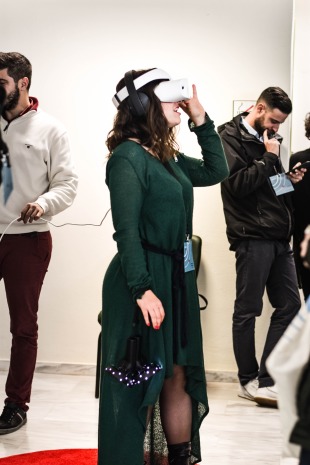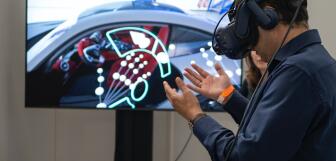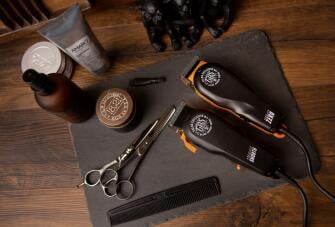What Is Experiential Retail?
Though the name may sound exciting, the actual concept is even better. Experiential retail provides customers with a stimulating and immersive shopping experience, encouraging full involvement and participation alongside elements of playfulness. While there's certainly no denying its fun factor, experiential retail is, in fact, serious business, and can be used as a powerful marketing tool.
But how can experiential retail benefit your business? And where is it used most effectively? If you're a retailer looking to take your customer experience to the next level, read on.
What is the definition of experiential retail?
Experiential retail can be defined as "any shopping experience in which customers are allowed to participate in activities that engage their senses and emotions, resulting in a deeper connection to the brand." This format differs from traditional retail, in that it goes beyond the simple act of buying and selling products.
If you owned a car dealership, for instance, you could have a VR headset in store, to give customers a feel of your cars without needing a test drive. Whatever route you choose, the main aim of experiential retail is to create a memorable and interactive experience that leaves a lasting impression.
What is the science behind experiential retail?
The science behind experiential retail is based on the concept of "embodied cognition". This theory posits that our physical interactions with the world around us significantly influence our cognitive processes. In other words, what we do affects how we think and feel.
In the context of experiential retail, this means customers who are actively engaged in the shopping experience, will be more likely to form a positive association with the brand. This is because their hands-on interactions with the product create a physical connection that remains in their long-term memory.
Want to get hands-on with the best solution for retail experiences? Find out more
What are the benefits of experiential retail for businesses?
While experiential retail can provide consumers with a fun and memorable shopping experience, businesses stand to gain a lot from this type of customer engagement as well. Some of the key benefits of experiential retail include:
Boosted brand awareness and recall
Studies have shown that customers who participate in an experiential retail activity are likelier to remember the brand than those who simply observe. The interactive and engaging nature of this strategy immerses your customers into your brand and its narrative, ultimately helping them to remember your business so vividly that they can recall it long after their interaction. This is a key factor in driving online sales after customers visit and word-of-mouth marketing.
Increased sales and revenue
When customers actively engage in the shopping experience, they're more likely to buy. In fact, studies show that experiential marketing can increase the likelihood of purchase by as much as 34 percent [2]. Unsurprising, since this technique focuses mainly on increasing the time customers spend in-store and loyalty-driving incentives like 'try before you buy'.
While this helps increase sales in the short term it can also increase repeat business, as customers are more likely to continue using a product with which they've already had a positive experience, especially for free. Businesses can expect a significant uptick in sales and revenue as a result.
Improved customer loyalty and retention
Experiential retail helps businesses build strong relationships with their customers by providing them with a positive and memorable experience. When customers feel valued, appreciated, and included by your brand, they're more likely to form a personal attachment, stick around, and continue doing business with you.
Since companies who create particularly positive experiences for their customers are three times more likely to retain them than businesses that don't, it's clear that providing an excellent customer experience through experiential retail can massively improve your loyalty and retention rates [3].
Extended reach
Considering word-of-mouth drives $6 trillion in annual global spending and results in five times more sales than paid ads, generating excitement is key to creating an unforgettable experience that customers won't stop talking about... and experiential marketing is all about excitement [4].
The high interactivity level of this particular strategy generates a sense of enthusiasm, or 'buzz', which can attract customers who might have not previously engaged with your brand based on your products alone. As a result, your business reach is extended both physically and verbally, with this new clientele's eagerness to share their experience also boosting your word-of-mouth marketing.
Increased foot traffic
Since the main objective of experiential marketing is to encourage customers to enter and linger in-store to explore other products they may not have initially considered, it's no surprise this strategy can boost your business' footfall. The increased traffic can also have a knock-on effect of boosting sales as 'busyness' can encourage passers-by who weren't initially considering it, to enter the store.

What are some examples of experiential retail?
There are many different ways to incorporate experiential elements into your retail store. Some common examples include:
VR and AR experiences
Utilizing virtual or augmented reality can give customers a unique experience they won't forget any time soon. By going as far as immersing them in a different world, or providing them with an enhanced view of products, your customers are bound to come away feeling impressed.
Product demonstrations
Customers can try out products in-store before they make a purchase. This is particularly beneficial for high-ticket items such as electronics or appliances where customers want to get a feel for the product before they commit to buying it.
In-store events
Hosting regular events such as live music or art exhibitions can create a fun and festive atmosphere in-store that customers will want to come back for.
Personalized services
Personalized services go a long way in creating a positive customer experience. From something as simple as offering free gift wrapping or engraving to providing complimentary coffee while they browse, or one-on-one styling consultations, these services provide an air of exclusivity and work to make the customer feel special.
Interactive displays
Creating an interactive experience for customers through digital displays or games can make your store more memorable and enjoyable to visit.
Customization options
Giving customers the ability to customize products to their liking is another great way to create a unique and personal experience. This could include everything from allowing them to design their own t-shirt or coffee mug to choosing the perfect engagement ring with the help of an expert in-store.
Digital games and quizzes
Installing digital games or quizzes in-store can provide an entertaining way for customers to engage with your brand. Not only will they have more fun while shopping, but they'll also be more likely to remember your store when they need the product you sell.
Holograms and smart mirrors
Holograms and smart mirrors can be used to create an immersive and interactive experience for customers. For example, a customer could try on a piece of jewelry without having to handle it physically, or they could test out a makeup product or dress before making a purchase.
Digital signage
Digital signage is a great way to grab attention and provide customers with information about your store or products. With digital signage, you can change up your messaging on a regular basis to keep customers engaged.
Surprise and delight experiences
Surprise and delight experiences are a great way to create an unforgettable customer experience. The best examples include giving customers a free gift with purchase or a discount for their next visit when they get to the till.
Experience your business differently with a powerful POS system
Retail point of sale (POS) systems are the backbone of businesses for a number of reasons. Designed to work as a complete business management system, Epos Now allows you to control all aspects of your company from one cloud-based system.
- Review auto-generated profitability reports based on individual product performance, trending items, and best and worst sellers.
- Multi-award-winning inventory management that syncs sales across multiple channels and ecommerce platforms.
- Customer management systems that save customer contact details and shopping preferences for more targeted marketing.
- Integrations with over 100 apps including marketing, accounting, bookkeeping, and loyalty program apps.
If you want to get your business involved in experiential retail, we'd love to hear from you!



